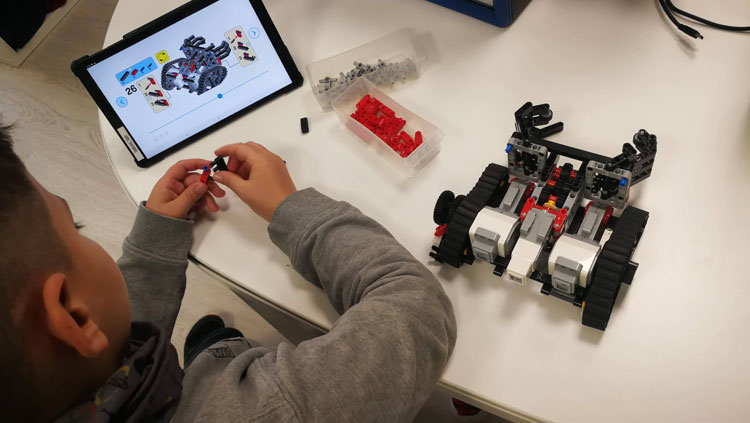Extracurricular activities are very important for the comprehensive development of children and teenagers. These activities are done outside of school hours and therefore provide a great opportunity to help them explore their own interests, meet other children with similar interests, learn skills that complement their formal education, and acquire values that will contribute to their personal growth, such as the importance of effort, discipline and teamwork.
There are increasingly more options and a greater variety of activities, making it easier to find an extracurricular activity that aligns with each child’s preferences, which may change over time. For example, programming and robotics after-school programs like Codelearn have gained popularity in recent years, and more and more children choose them each school year. Each extracurricular activity has its advantages and challenges, but the most important aspect when choosing one is that each student finds something they enjoy and feel motivated by, so they can strive to achieve their personal goals while having fun. This will also improve their self-esteem and self-confidence.
Sports, for instance, offer numerous benefits to both physical health and well-being (development of motor skills, increased cardiovascular endurance, muscle strengthening, improved flexibility, prevention of sedentary-related illnesses), as well as mental benefits (concentration, decision-making, problem-solving). They provide a great socialization space and promote important values such as respect for others, responsibility, and work ethic. However, it is important to consider that most sports also require personal sacrifices, as they involve training on specific days and traveling for competitions on weekends.
Another popular extracurricular activity is learning foreign languages, such as French or Spanish. Learning languages can open many doors academically and professionally in the future, but it also has many personal benefits. It allows us to navigate the world more easily, connect with people from different cultures, and gain a better understanding of their countries and cultures. Moreover, language learning stimulates the brain and contributes to the development of cognitive flexibility, thereby improving problem-solving skills. However, to make progress and achieve a good level of proficiency in a language, it is necessary to be consistent and dedicate time to regular practice and immersion in the language.
Artistic extracurricular activities such as music, dance, or visual arts allow young children to explore their imagination and express their ideas creatively. These activities promote creativity, freedom of expression, and originality, thereby contributing to children’s emotional and social development. Learning the techniques involved in each artistic discipline also requires the development of various skills, such as coordination, fine motor skills, memory and concentration. Artistic activities also require consistency to learn and improve techniques. However, access to these activities may be limited as they may be less available in smaller towns compared to larger cities. Additionally, it’s important to consider that they sometimes involve significant financial investment for materials or instruments.
Regarding Codelearn, a programming after-school program which uses its own method, learning programming, robotics, and computational thinking helps us practice various different areas. It starts from literacy skills for younger students and extends to mathematics, physics, and English for all students, as these disciplines are also applied in coding. Codelearn fosters logical thinking and problem-solving, stimulates creativity and prepares children and teenagers for their future, as they will need to interact with and understand technology in their workplaces and daily lives. One of the great advantages of Codelearn is that can be both an in-site and online activity, allowing students to participate from a center or from home, offering flexibility in scheduling and facilitating access for those living in remote areas. As we have seen with other extracurricular activities, learning to code also requires a significant amount of time and dedication, as it is an activity that demands practice and consistency.

